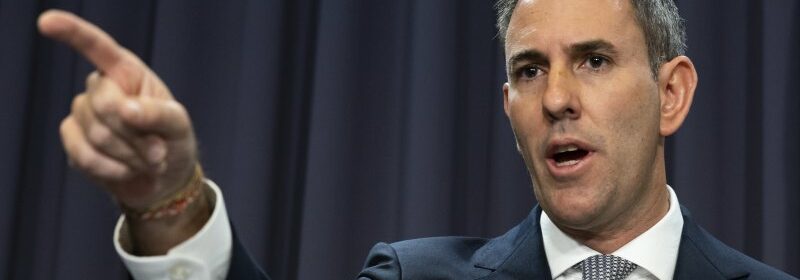Chalmers has a story many will be relieved to hear, so why is it being drowned out?

Save articles for later
Add articles to your saved list and come back to them any time.
Jim Chalmers will have a good story to tell when he hands down the budget on Tuesday night.
The budget is set to include a suite of cost-of-living measures – a rise in JobSeeker for recipients aged over 55, energy bill relief, more support for renters and restoration of single-parent payments – all while delivering what is expected to be the first surplus in 15 years.
Treasurer Jim Chalmers has a good story to tell on the budget, but other plot lines have intervened.Credit: Alex Ellinghausen
These are spending items that will help with the cost-of-living crisis, but shouldn’t add to inflation and interest rates.
It is curious, then, that Labor hasn’t been prosecuting this narrative more forcefully in the lead-up to the budget.
The treasurer wants us to hear about cost-of-living relief, but his narrative keeps being interrupted by other plot lines: the vast spend on AUKUS and long-range missiles, the Tasmanian stadium fanfare, and – the week before a budget focused on tough economic times – Prime Minister Anthony Albanese’s attendance at a shock jock’s $1 million wedding and the lavish theatre of King Charles’ coronation.
If any one of those events happened in isolation, the government probably could have escaped this budget without raising the JobSeeker payment. But they combined to create a narrative – perhaps a false one – that the government was spending big on discretionary items while Australians were doing it tough.
This made it difficult to ignore the calls for a rise in the JobSeeker payment, especially when its handpicked economic inclusion committee recommended a “substantial increase”.
Raising the $50-a-day unemployment payment only for the older demographic is defensible: these people are particularly vulnerable and many of them have been left exposed by the rise in the pension age to 67.
Presumably, an increase for all JobSeeker recipients would have junked any plans for a budget surplus – which was too good to ignore once it was within reach.
But there are genuine questions about whether the government should have bothered to pursue a surplus in this budget.
The surplus has come from the rivers of gold flowing from record-high commodity prices off the back of the war in Ukraine, and the government getting an extra $2.4 billion from LNG projects will surely help.
But from 2025, the budget will fall off a cliff.
The $243 billion stage three tax cuts and expensive defence programs such as the $368 billion nuclear submarines – along with the soaring cost of the National Disability Insurance Scheme, health and aged care, and the drop-off in commodity prices – will create a glaring black hole.
This is why Chalmers should not be ordering “Back in Black” mugs, as the Liberal Party did when they mistakenly thought Josh Frydenberg was going to deliver a surplus in 2020 before the global pandemic.
Regardless, Chalmers and Albanese will want to pitch the surplus as a political win. And the Coalition is in for a few months of pain, after failing to deliver a single surplus in its nine years of power.
The opposition will try to argue that the surplus is the result of its own strong economic management while in government. But again, because of the cliff coming in 2025, neither side should lay claim to it.
Labor will then have a few options.
The prime minister could call an early election next year, so that he faces voters when the budget is still notionally in surplus (although the forward estimates will show the cliff coming).
Or Labor could use the pending budget shortfall to argue for the scrapping or overhaul of the stage three tax cuts, as well as other savings such as a clampdown on superannuation tax concessions, and take those decisions to the election.
Voters care about wasteful spending, but the cost-of-living crisis may mean they care less about an arbitrary surplus and more about whether the spending is adding to inflation and interest rates.
This is why Albanese and Chalmers need to be careful in how they present the budget being back in the black.
It won’t be the best story in the budget.
The Morning Edition newsletter is our guide to the day’s most important and interesting stories, analysis and insights. Sign up here.
Most Viewed in Politics
From our partners
Source: Read Full Article
